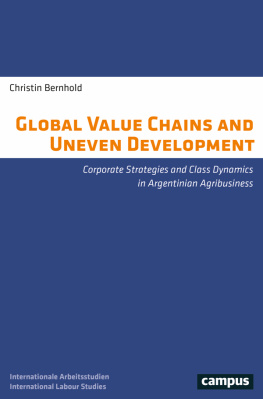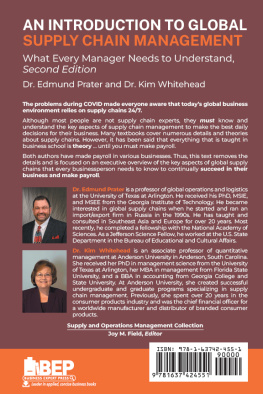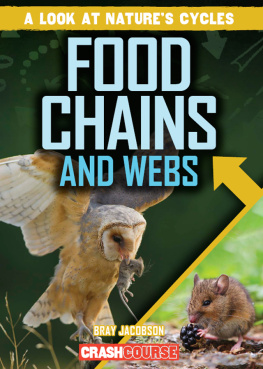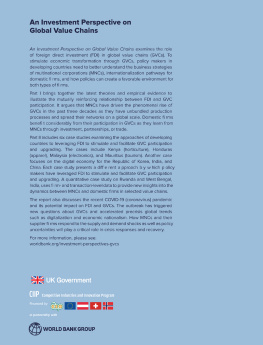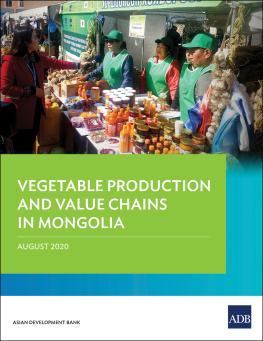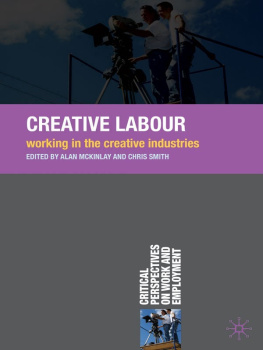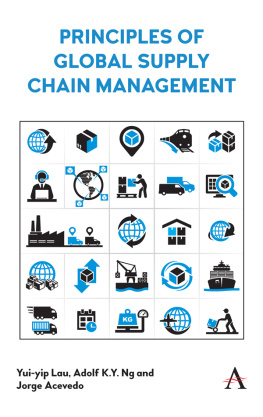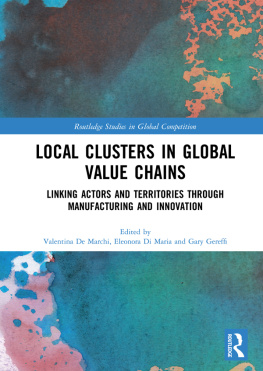Globale Wertschpfungsketten (GWK) bieten berall auf der Welt Mglichkeiten fr konomische und soziale Aufwertung? Das kolportieren zumindest Institutionen wie die Weltbank. Diese Annahme ist jedoch weder theoretisch noch empirisch haltbar, so der Befund von Christin Bernhold. Die Argumentation sttzt sich auf eine ideologiekritische Diskussion der GWK-Forschung und eine umfassende Analyse von Upgrading-Strategien im argentinischen Agribusiness. Wirtschaftsverbnde organisieren sich dort entlang von Agrar-Wertschpfungsketten, um Partikularinteressen durchzusetzen. Durch upgrading in and through class differentiation werden Ausbeutungsverhltnisse und die ungleichen Geographien des Kapitalismus zum Wohle einiger weniger umgeformt, nicht aber aufgehoben.
Christin Bernhold is a post-doctoral researcher at the Institute of Geography at the University of Hamburg.
Introduction: Whos Upgrading?
Together we add value. This is a catchphrase used by El Agro El Agros former chairman Santiago in particular has made a name for himself by pioneering the restructuring of agriculture in the Pampean region, the main hub of grain and soybean production in Argentina, into a highly technologized, network-like industry. The company was among the first to employ no-till farming methods and other forms of process upgrading in Argentina, including new forms of organizing primary production, all of which I will explore throughout this book.
The catchphrase Together we add value conveys the sense that these achievements entail a win-win situation for all kinds of actors. In this scenario, partners add value together, and no one is appropriating the fruits of someone elses labor. In this vein, El Agro refers to itself as the managing nucleus of an innovative, knowledge-based network that promotes modernization and progress in a way that serves broader socioeconomic development. The company is just one case in point. Its description of itself mirrors the notion propagated by pro-agribusiness state, corporate, and media representatives that agribusiness-led growth can benefit all actors in the respective value chains, provided the right measures are taken by state and private actors (see Tort 2010, 108).
In fact, studies on agrarian change have shown that grain and oilseed production in this country has generally undergone significant changes over the past three decades. Among other transformations, scholars have pointed to the technologizing of primary production using genetically modified organisms (GMO) and to the advent of modern large-scale agribusiness. Extensive soybean cultivation has received particular scholarly attention (Acosta Reveles 2008; Delvenne et al. 2013; Giarracca and Teubal 2008; Gras and Hernndez 2013a; Leguizamn 2014).
Grain production has long played a crucial role in Argentinas economic, political, and social history. However, it began to skyrocket around the turn of the millennium. The harvested area for important grains and oilseeds (soybeans, wheat, maize, and sunflower seeds) more than doubled from approximately 14.5 million hectares (ha) to nearly 32 million ha between 1990 and 2019. In this same period, the production of these commodities more than quadrupled from approximately 30 million tons to 135 million tons, and the average yield has grown from 2.16 tons/ha to 3.33 tons/ha in the case of soybeans and from 3.5 tons/ha to 7.9 tons/ha in the case of maize (FAOSTAT). Accordingly, productivity has increased significantly. The cultivation, processing, and trade of soybeans in particular have grown in importance to Argentinas political economy (Lence 2010). In 2020, soy and its derivatives alone accounted for approximately 27.1 percent of all the countrys exports, compared to 18 percent in 1993, while all grains and oilseeds and their derivatives totaled nearly 48 percent of all exports in 2020 (INDEC). In this context, Argentina has also become an important player on the world scale. Today, it ranks third in producing raw soybeans after Brazil and the US (USDA 2022, 17). Furthermore, the country has developed a considerable processing industry for these oilseeds. In 2020, 38.8 out of 48.8 million produced tons of soybeans (more than 75 percent) where crushed in Argentina and thus underwent at least a first step of industrial processing in situ (ibid., 33). That same year, Argentina was the fourth biggest crusher of these oilseeds after China, the US, and Brazil and the worlds top exporter of soybean oil and soybean meal (ibid., 18 f.).
It is in this context that some agriculture companies of Argentinian origin have managed to grow to such an extent that they are able to integrate their investment activities within larger parts of agro-industrial value chains, including technology development, the production and sale of agrochemicals, the provision of financial and other agro-related services, the commercialization of crops, and the operation of processing plants. At the same time, these actors have changed the dominant model of capitalist farming in the Pampean region. For much of the 20 th century, the region saw both big farmers and so-called Chacareros. The latter have been described as traditional capitalized farmers who own the agriculture machinery needed for production, with a strong participation of family labour in direct production for both subsistence and the market. Until the mid-20 th century, many of them leased-in land. Later, they gradually acquired land property (Muzlera 2021). Today, agricultural enterprises mostly outsource rural labor associated with primary production, such as sowing and harvesting. They lease in land and machinery, contract labor, and manage primary production on large scales.
Here, companies like El Agro come into the picture as local actors who are driving the historically changing patterns of agro-industrial value chain development in Argentina. For a time, this company alone cultivated agricultural goods on several hundred thousand hectares. Today, it concentrates on making investments all along agro-industrial value chains, as Chapter 9 analyzes in depth.
One could stop at this point and interpret these developments as an example of modernization and success. But is the performance of agro-industries in Argentina really a success story? And if so, for whom? This book takes a closer look at these developments to understand whose interests are ultimately vindicated in the wake of agro-industrial upgrading in Argentina, what kinds of strategies are being enforced on the ground, and by whom. In this context, I also examine whether, where, and how the respective actors face limitations, and what implications particular strategies entail for other actors.
In Argentina and beyond, opinions on the matter have to date differed sharply. As mentioned above, some accounts are optimistic: Policy makers, academic scholars, and corporate actors have maintained that agribusiness involves much more than the mere production and export of primary goods. This debate has been influenced by the global value chain (GVC) approach (Gereffi and Kaplinsky 2001), which introduced upgrading as a key development strategy. Upgrading, which I will discuss in greater detail in Chapter 3, is commonly understood as a process whereby firms or regions shift to more secure or more profitable niches within or between industries through organizational learning facilitated by networks (Werner 2012, 403). At the same time, it has been implicitly or explicitly linked to the prospect of broader socioeconomic development. The World Bank recently claimed that GVCs can boost incomes, create better jobs, and reduce poverty (World Bank 2020). In this spirit, key actors in Argentina have come to regard agro-industrial upgrading as a potential driver of socioeconomic development in situ.

